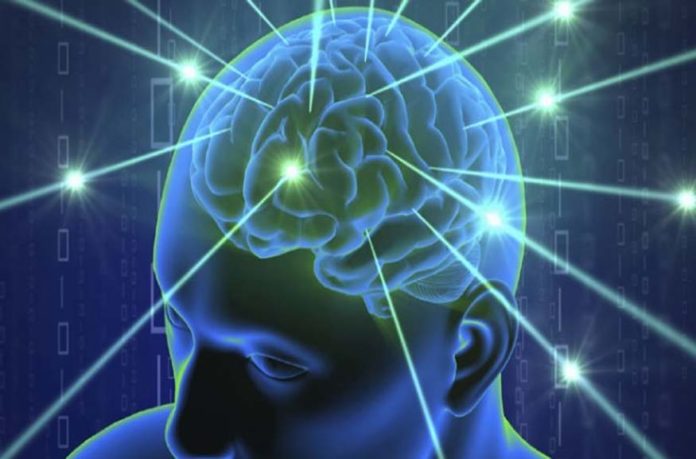Disclaimer: The Eqbal Ahmad Centre for Public Education (EACPE) encourages critical and independent thinking and believes in a free expression of one’s opinion. However, the views expressed in contributed articles are solely those of their respective authors and do not necessarily reflect the position or policy of the EACPE.
Living in the 21st century, we are far more rational than our ancestors and can explain and predict things better. We are also less fearful than they were. It’s simply because our physical understanding of the universe has improved and science has changed our world view. For instance, our ancestors thought that universe was flat, and that man was assumed to be centre of the universe. But now we know those were simply unreasonable beliefs which were product of dogmatic thinking. There were many such superstitions which eventually got eliminated by science. If we look back in time, the only thing which affected us largely happens to be science. Literature did also bring change but it too was affected by scientific advancement.
It is one of the best qualities of science that it continues to improve itself and it is the only self correcting subject. In science we never claim for absolute certainty rather we know well the level of uncertainty in our prediction. We look at both sides of theories, and even try to prove an idea wrong as much as we try to prove it right.
There are certain problems from which our judgement still suffers. Our thinking process is not ideal in any sense; emotions and certain factors still drive us irrational. We are affected by them while listening and judging someone. I call these factors as filters on the basis of which we decide our response. These are filters of language, filters of beliefs, filters of cultures, values, attitude, expectations and intentions. These are very things which affect us when we are listening to somebody. They decide whether we are going to pay attention to what is being said and whether we should be conscious about it or not. Most of us remain unaware of them and we do not know that we are behaving in a way that is affected by such things.
Let us talk about them one by one.
Take the language first: there are some which are considered sacred and if something is quoted in that language, it may be more effective than other languages. Moreover, some languages get tags. As if somebody here speaks in English while describing science, then some consider him more trustable in knowledge of science than his counterpart speaking in native language. We may pay more attention to a man with English than that of, say, Urdu. This is our filter and our presupposition about what is being said and we almost all follow that to some extent. The truth and reality has nothing to do with language and we must pay attention to what matters, not on the medium of expression.
“The acquisition of knowledge is hard; our minds are prone to illusions, fallacies, and superstitions.” (Steven Pinker)
Next comes the belief which is a highly effective filter and interestingly we mostly remain unaware while using it. Every believer considers himself to be quite logical and rational and also claims to be honest in his thinking. But when he listens to something which is contrary to his beliefs, he resists accepting it. Dr. Salman Hameed refers this phenomenon in one his lectures as “when evidence is powerless.” Some people have got nothing to do with truth and evidence, and when we argue with logical reasoning and evidence, they still refuse to accept it. Take the example of opponents of the theory of evolution: because it appears contrary to one’s religious beliefs, one doesn’t accept it irrespective of how overwhelming the evidence is. .
Understanding things especially the way science guides is not easy for all. Most of us behave irrationally in our daily discussion and it is somehow human nature to follow impulsive emotions than composed way of thinking and analyzing things.
There is a truthful saying by Harvard psychologist, Steven Pinker:
“The acquisition of knowledge is hard; our minds are prone to illusions, fallacies, and superstitions.”
This is disastrous for a proper discussion and every method of communication is ineffective for such people. We must understand that we can have our set of beliefs, but we should also be open minded to opposite evidence. As Christopher Hitchens said, “It doesn’t matter what you think about certain ideas, but how you think”
This “how” is what is important.
All humans become prey to these filters. Scientists, however, are little safer from them, and that is why there is always consensus among them.
The other one is the filter of values or that of culture. Both are almost equivalent in meaning and there is a very thin line between the two. We have certain birthday place or cultural values. While listening to somebody we use these values as filter. For example, lately when Women Protection Bill was presented, many people said that this was the part of western society to give such freedom to women and it was against our values. We need to realize that values cannot decide what is right and which step is better. Values can be changed or replaced by better ones.
Others are the filters of expectations and intentions which affect our listening and thinking process and they can make us irrational in our judgement about a certain idea. We expect other to listen us and accept our arguments, but at the same time when others try to prove us wrong, we take it as an insult and it becomes quite difficult for us to agree with them irrespective of their arguments and evidence. This is often practised in our TV talk shows. Debaters think that it will be insulting to agree with the opponent, and often debates turn into ugly verbal brawls. We need to create an environment of healthy dialogues in order to ensure productive discussion, so that we may reach to solutions to the problems our country is facing nowadays.
To sum up, we should know what filters are we applying knowingly or unknowingly, and we need to overcome all such hurdles which are affecting our thought process and judgment. This is not a problem of a particular part of world rather it is a global issue. All humans become prey to these filters. Scientists, however, are little safer from them, and that is why there is always consensus among them and most importantly no scientist has ever harmed or killed any other scientist for disagreeing with him. It is mainly because they are more rational, logical and neutral in their thinking than common man. They have learned to overcome their brain filters. Wouldn’t it be great if we do the same!
About the Author:
The writer is doing F.Sc (Pre-Engineering). He has a deep enthusiasm for physics and mathematics. He is also a member of Science Talent Farming Scheme (STFS) of Pakistan science foundation (PSF).







